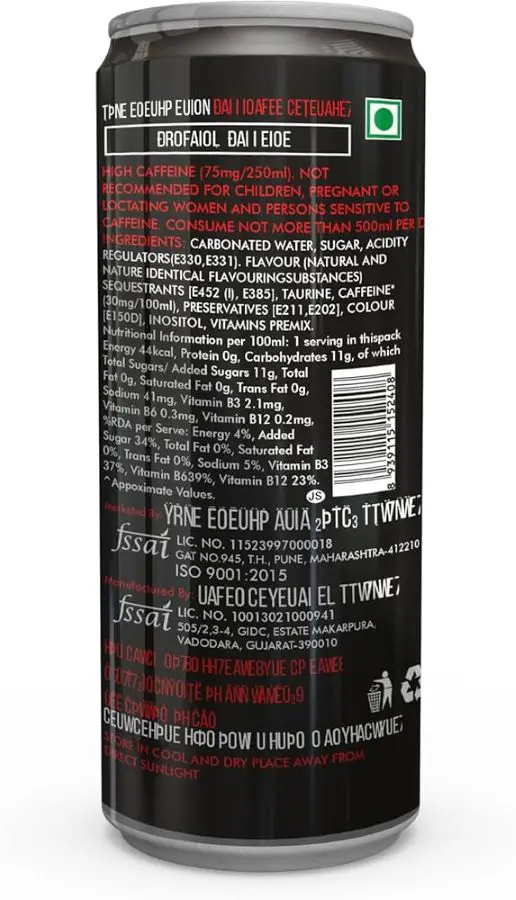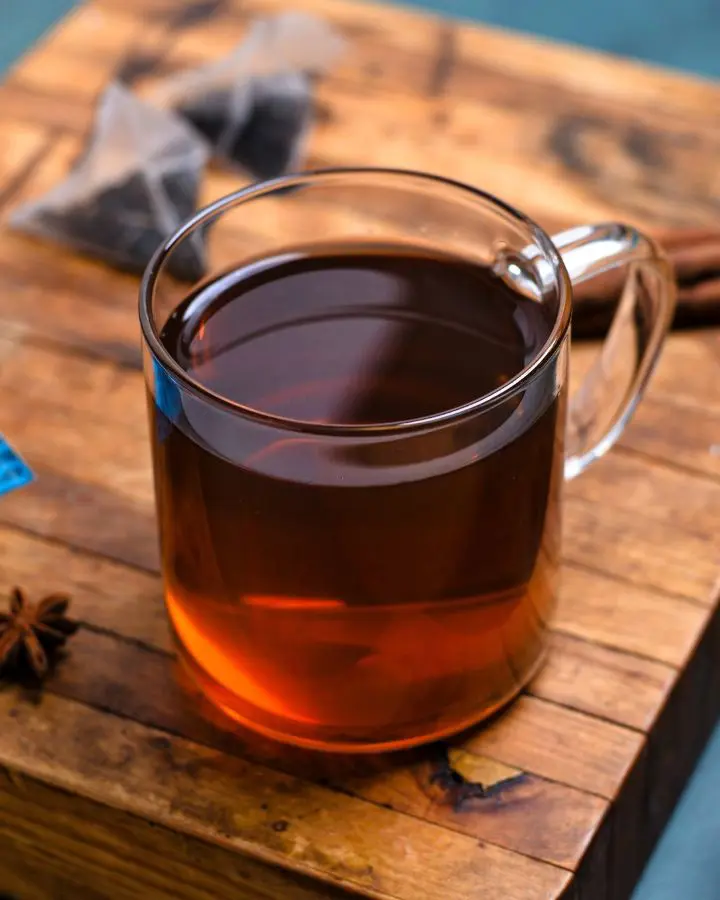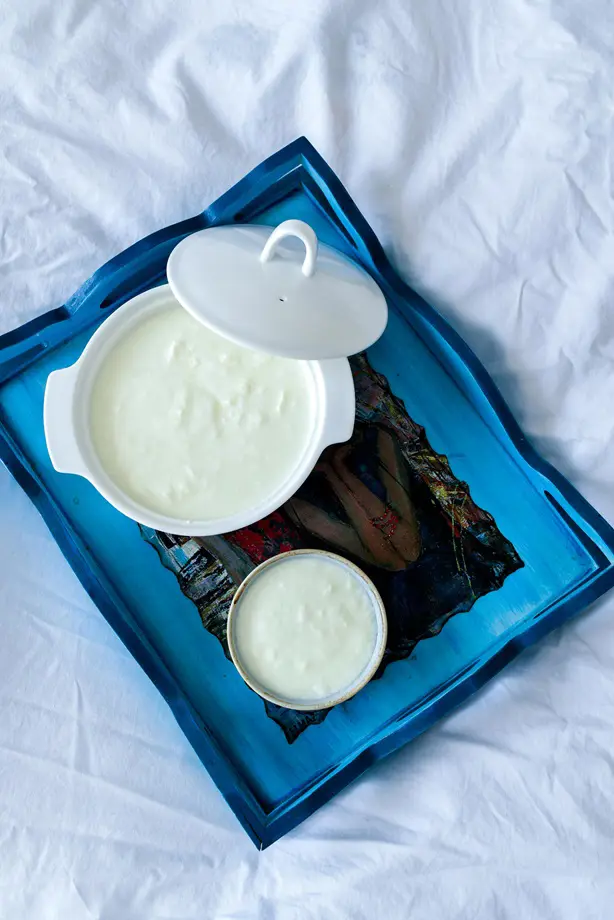How Much Caffeine Is Too Much In One Day?

This post may contain affiliate links. If you make a purchase through links on our site, we may earn a commission.
Without even realizing it, caffeine is stapling in our everyday lives. Our mornings usually begin with a cup of coffee, likewise, to get through the afternoon slump we might sip on an energizing drink or grab a refreshing soda on a sunny day to quell our thirst, this shows that caffeine is everywhere. But is it possible to keep consuming these caffeinated beverages without knowing when to stop?
In fact, there is a specific limit to how much caffeine you should consume. And to help you we've put together this article that covers everything you need to know about caffeine, its impact, and much more. Keep on scrolling!
What Is Caffeine?
Let's start by learning what basically is caffeine; it is a natural stimulant that exists in coffee, tea, soft drinks, and various energy products. It works by improving the central nervous system, which makes you more conscious and relieves your tiredness for some time. No one can run from the reality that many people depend on caffeine to kick start their day (nothing brings out the morning like a perfect cup of coffee or tea) or to get through the yawning afternoon. Whatever the reason behind consuming caffeine you have to count your limits and understand its effects on your body.
The Science Behind Caffeine Intake
Caffeine holds such a power that when you consume it, it is rapidly absorbed into your bloodstream and slightly reaches your brain. After that, it blocks adenosine receptors, a neurotransmitter that makes you feel drowsy. This blockage benefits you with high alertness, enhances your mood, and as we have mentioned above temporarily increases your energy level.
- Nervous System: Increased alertness and reduces fatigue.
- Metabolism: Can slightly boost metabolic rate.
- Mood: Potentially improves mental focus and reduces depression risk.
- Physical Performance: May enhance athletic performance and endurance.
Recommended Daily Intake

Apart from being a great refreshment, caffeine drinks contain very lovely and pleasing tastes ( that is why everyone seems to enjoy it). However, just don't run behind some temporary refreshment and taste, as excessive consumption is not healthy. Individuals have to be really careful with the amount of caffeine they take, since its over-intake may lead to several problems for health.
General Guidelines
The U.S. Food and Drug Administration (FDA) suggests that most healthy adults can safely consume up to 400 milligrams (mg) of caffeine per day. This amount is roughly equivalent to:
- 2 to 3 12-fluid-ounce cups of coffee
- 10 cans of cola
- 2 energy shot drinks
For many individuals, this level of consumption does not lead to adverse effects and can even offer some health benefits. However, it's important to note that individual tolerance can vary widely.
Factors Influencing Caffeine Sensitivity
1. Body Weight
The FDA recommends a maximum of about 5 mg of caffeine per kilogram (2.2 pounds) of body weight. For example, a person weighing 70 kg (154 pounds) should ideally limit their intake to around 350 mg per day.
2. Health Conditions
Certain medical conditions can heighten sensitivity to caffeine. Individuals with anxiety disorders, heart conditions, or those taking specific medications may need to limit their caffeine consumption further.
3. Age
The amount of caffeine to be taken by children or teenagers should be much lower than that taken by adults. Most recommendations suggest limiting intake to less than 3mg per kilogram of body weight. If you can, please keep your children away from caffeine till they are 12 years old. According to the American Academy of Pediatrics (AAP) after 12 they can limit their caffeine intake to 100mg per day
4. Pregnancy and Breastfeeding
Pregnant women are advised to reduce their caffeine intake to about 200 mg per day (which is about the amount of caffeine in one 12-ounce cup of coffee or 1.5 8-ounce of coffee). Don't neglect this intake limit because overconsumption of caffeine can affect fetal development and may remain in the bloodstream longer during pregnancy.
Note: In case you are sensitive to caffeine then even a small intake affects you. If you experience side effects like a racing heartbeat, headache, insomnia, restlessness, and nervousness do not dismiss side effects but rather dismiss coffee.
Common Sources Of Caffeine
Being aware of where caffeine can be found may help to avoid its intake. Surprisingly, some beverages that are widely considered to be caffeine-free contain some caffeine, a perfect example of this is decaffeinated coffee, despite its name, it still contains some caffeine commonly between 2-15 milligrams per cup depending on the brewing process. Below is a list of some of the sources of caffeine showing their caffeine content and their approximate caffeine content.
| Beverage/Food | Serving Size and Caffeine Content |
| Brewed Coffee | 8 oz (240 ml), 95mg (caffeine) |
| Espresso | 1 oz (30 ml), 63mg (caffeine) |
| Black Tea | 8 oz (240 ml), 47mg (caffeine) |
| Green Tea | 8 oz (240ml), 28mg (caffeine) |
| Cola | 12 oz (355 ml), 34mg (caffeine) |
| Energy Drink | 8 oz (240 ml), 80 mg (caffeine) |
Effects Of Too Much Caffeine

People need to be really aware of their caffeine consumption because if they ingest a lot of it then they can experience a range of negative effects on both physical and mental health. We agree it does contain benefits as well but we don't suggest excessive intake, as it can cause several uncomfortable and potentially harmful symptoms:
Common Effects
1. Anxiety and Jitters
Consumption of high levels of caffeine may result in the development of anxiety, nervousness, and restlessness, which makes it hard for some people to relax. A number of people mention that they get feelings of bitterness, which feel like an uncomfortable sense of shakiness or unease. All these effects can make it difficult to do daily activities, as you may feel overwhelmed and unable to concentrate well enough.
2. Sleep Disruption
Another reason why people take coffee of caffeine is to be alert, that is why one of the outcomes of caffeine is sleep disruption. Caffeine can interfere with your sleep pattern and make it extremely difficult to get to bed or even to stay there. This can go on and on resulting in eventual fatigue and increased consumption of caffeine.
3. Increased Heart Rate
Consuming excessive amounts of caffeine can lead to your heart racing or beating irregularly, which can feel disconcerting and even somewhat frightening for certain individuals. This sensation often described as a pounding or fluttering heartbeat, might surprise you, particularly if you are not accustomed to high caffeine intake. For some, it may seem like just minor unease, but for others, it can be distressing enough to prompt them to rethink their caffeine consumption.
4. Digestive Issues
Taking too much caffeine can irritate your stomach, leading to uncomfortable issues like heartburn, nausea, or even diarrhea. This happens because caffeine increases acid production in the stomach, which can upset its delicate balance.
5. Dependency
Regularly consuming high doses of caffeine can lead to physical dependency. People may experience withdrawal symptoms like headaches and fatigue when they cut back on caffeine.
6. Increased Heart Rate
Having too much caffeine can make your heart start beating faster than usual or feel like it’s skipping a beat, which is often referred to as palpitations. This sensation can feel strange or even unsettling, especially if it catches you off guard.
7. Dehydration
As a diuretic, caffeine can increase urination, and potentially lead to dehydration if fluid intake isn't sufficient. Additional effects may include dizziness, muscle tremors, and increased body temperature.
Severe Symptoms of Overconsumption
In extreme cases, too much caffeine can result in serious health issues:
1. Caffeine Intoxication
This condition can manifest as confusion, hallucinations, severe agitation, and even seizures. It occurs when caffeine levels in the body become excessive.
2. Cardiac Issues
Very high doses may lead to heart problems, including cardiac arrest in severe cases. So, it's better to be aware of these issues and consume caffeine on limits.
How To Monitor Your Caffeine Intake?

To avoid consuming too much caffeine, it will be best if you start to watch your daily caffeine intake. To observe, simply consider these things
- Know your sources: There is a misconception that many people believe caffeine is a synonym for coffee; let us remind you that caffeine is not only in coffee. It is also found in tea, chocolate products, energy drinks, sodas, and believe it or not even some medications as well. That is why always glance at the caffeine content labels on the back of every drink, soda, or any other drink.
- Track your intake: Another way to monitor your intake is by remembering every consumption. You can keep a log of how much caffeine you consume daily to ensure you stay within safe limits (bothersome but worthwhile).
- Opt for decaf alternatives: If you are truly into the taste of coffee or tea and on the other hand want to reduce your intake, in such case, you can switch to decaffeinated versions.
- Be mindful of timing: You can easily prevent yourself from sleep disturbances if you become successful in avoiding caffeine in the late afternoon or evening.
How To Reduce Your Caffeine Intake Safely?

If you are consuming too much caffeine for a long time and want to avoid it or totally deduct it from your daily life then you may face some withdrawal symptoms like:
- Headache
- Fatigue
- Muscle pain
- Irritability
- Difficulty concentrating
To bypass these withdrawal symptoms, you have to go slow and try to reduce your intake gradually. Here's how:
- Cut Back Slowly: Reduce your daily intake by small amounts each day to give your body time to adjust.
- Switch to Low-Caffeine Options: Replace high-caffeine drinks with lower-caffeine alternatives, like herbal teas.
- Stay Hydrated: Drink plenty of water to flush out caffeine and reduce withdrawal symptoms.
- Get Enough Sleep: Prioritize sleep to feel naturally energized without relying on caffeine.
Alternative Methods for Energy
If you are looking for ways to boost your energy without relying solely on caffeine:
- Consider regular physical activity
- Take short breaks during work or study sessions
- Practice good sleep hygiene by ensuring you get enough rest at night
Some Alternatives To Reduce Your Caffeine Intake
If you are searching for substitutes for coffee and energy drinks that still offer a caffeine kick, there are numerous options available. Here are some well-liked selections:
Caffeinated Alternatives

- Green Tea: This is an excellent option to reduce your caffeine intake, as it contains less caffeine than coffee and provides a mild energy boost. In addition, it is rich in antioxidants and may help relieve stress.
- Black Tea: Like green tea, black tea contains half as much caffeine as coffee, which is needed to give a concentrated increase in energy. It may sharpen your concentration and has multiple health implications as a polyphenol.
- Yerba Mate: A traditional South American beverage, yerba mate contains caffeine as much as coffee, yet it also contains nutrients that help improve memory and increase focus.
- Matcha: This is a green tea powder that has three times more caffeine than any common tea and it gives a constant boost of energy without the nervousness, thanks to its L-theanine substance content.
- Guarana: Found in many energy products, guarana seeds are rich in caffeine and give the drink an invigorating feel.
- Kombucha: This fermented tea drink contains very small amounts of caffeine and has probiotics which can be beneficial to our gut.
Non-Caffeinated Alternatives

If you want to avoid caffeine altogether but still seek an energy boost, consider these options:
- Maca Root: This Peruvian plant is consumed in a powdered form in drinks, claimed to improve energy and mood without the effects of caffeine.
- Rhodiola: Known for its adaptogenic properties, rhodiola can help reduce fatigue and improve mental performance during stressful times.
- Carob: Often used as a chocolate substitute, carob is naturally caffeine-free and offers various health benefits.
- Golden Milk: This warm beverage made with turmeric and other spices is not only caffeine-free but also packed with anti-inflammatory properties.
- Lemon Water: Starting your day with hot water and lemon can hydrate you and provide a refreshing boost without any caffeine.
Recent posts
Lifestyle
Lifestyle
20+ At Home Remedies For Nausea
Nausea can affect any of us, any time of the day. Though nausea has unexpected timing, fortunately, there are several natural and simple home remedies that are effective in healing the discomfort. From foods that help calm the stomach to breathing te...
Lifestyle
How to Get Rid of Neck Pain: 10 Home Remedies To Fix Stiff Neck
Neck pain is a common issue of today, affecting more than one-third population of the US. The common causes that often lead to stiff neck include sleeping in an awkward position that involves straining of the neck, sitting in a bad posture for long p...
Lifestyle
10 Home Remedies For Loose Motion and Diarrhea
When in tough times, due to issues like loose motion or diarrhea, it would be reassuring for you to know that there are remedies, that also in your own pantry! Whatever the cause may be, be it an infection, food intolerance, or stress, these ingredie...
Lifestyle
How To Eat A Star Fruit
Star fruit is a tropical fruit known for its unique star-like appearance. The fruit can be enjoyed simply, on its own or by adding it on recipes where its extra burst of color and sweet-tart taste can blend well with other ingredients. Whichever way ...
Lifestyle
Is Yogurt Good For You?
Yogurt is a dairy product, a nutrient-packed food. It is often hailed as a health food and there are good reasons for this. If we look into the nutrients present in yogurt; it has numerous of them essential for functioning of our body. In this articl...
Lifestyle
Is Vegan Diet Actually Healthy?
A vegan diet is considered healthy but not most of the time. As all vegan foods have many beneficial nutrients, they also lack some which often sparks the debate. Without animal products, a vegan diet can be believed to have significant health benefi...





